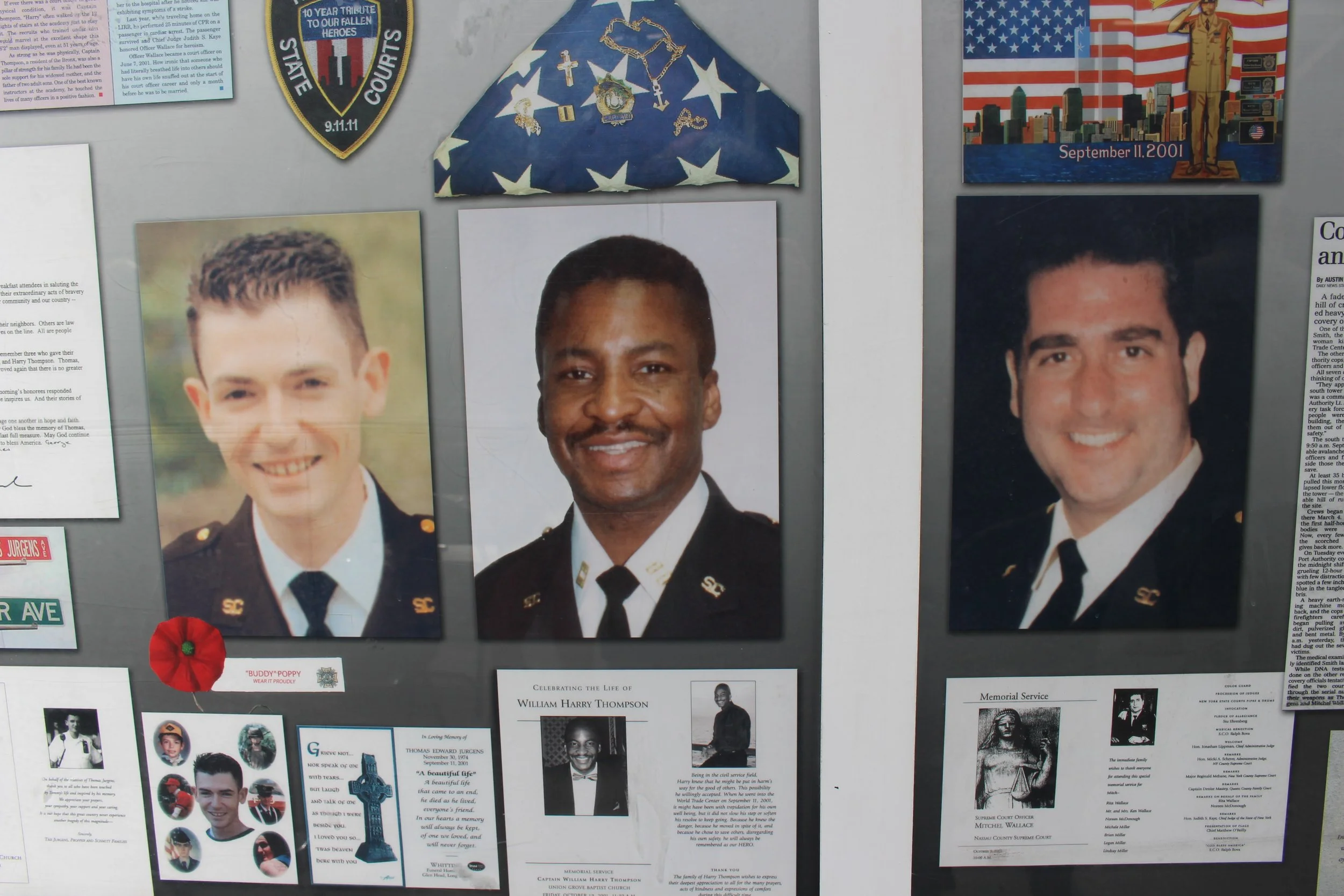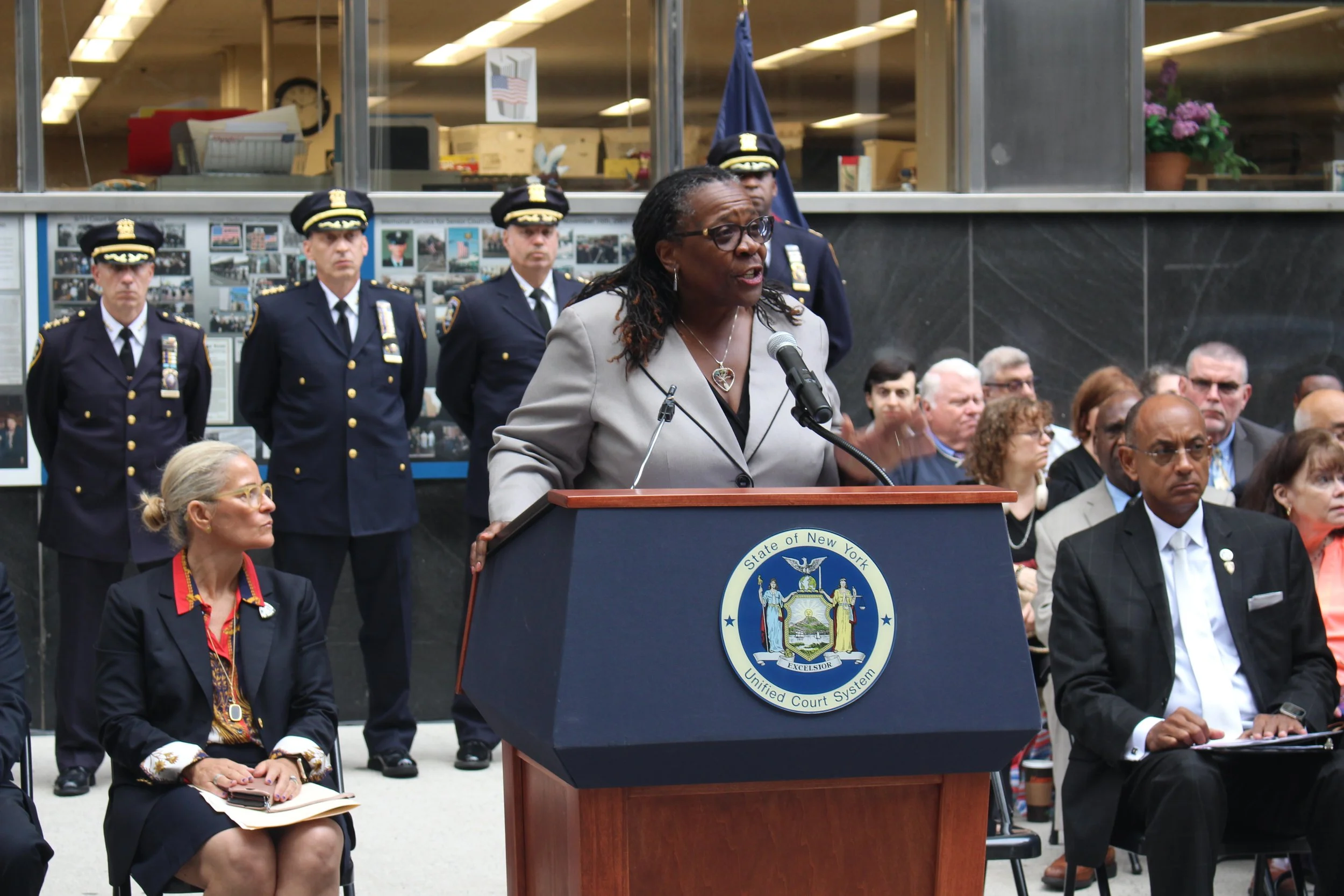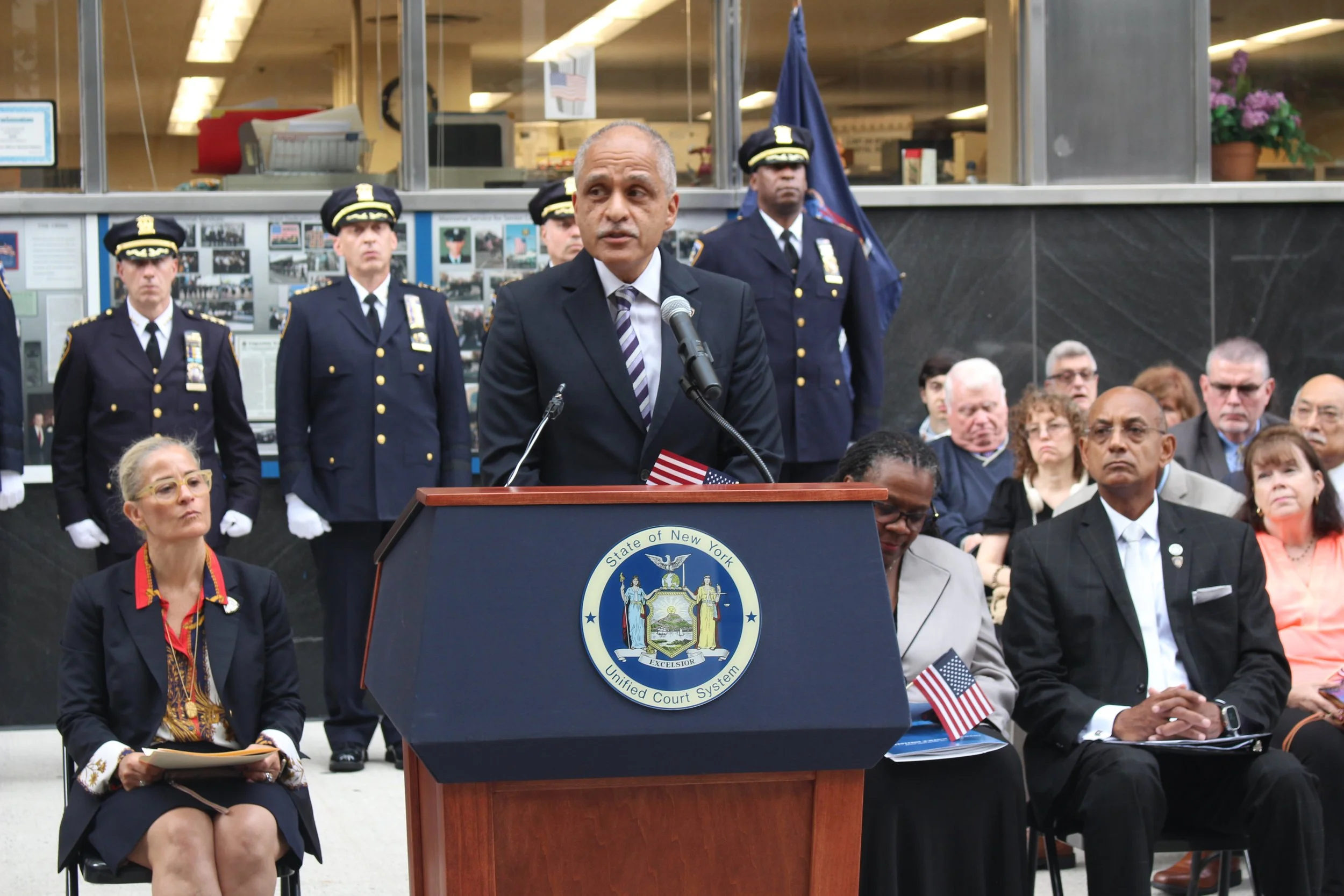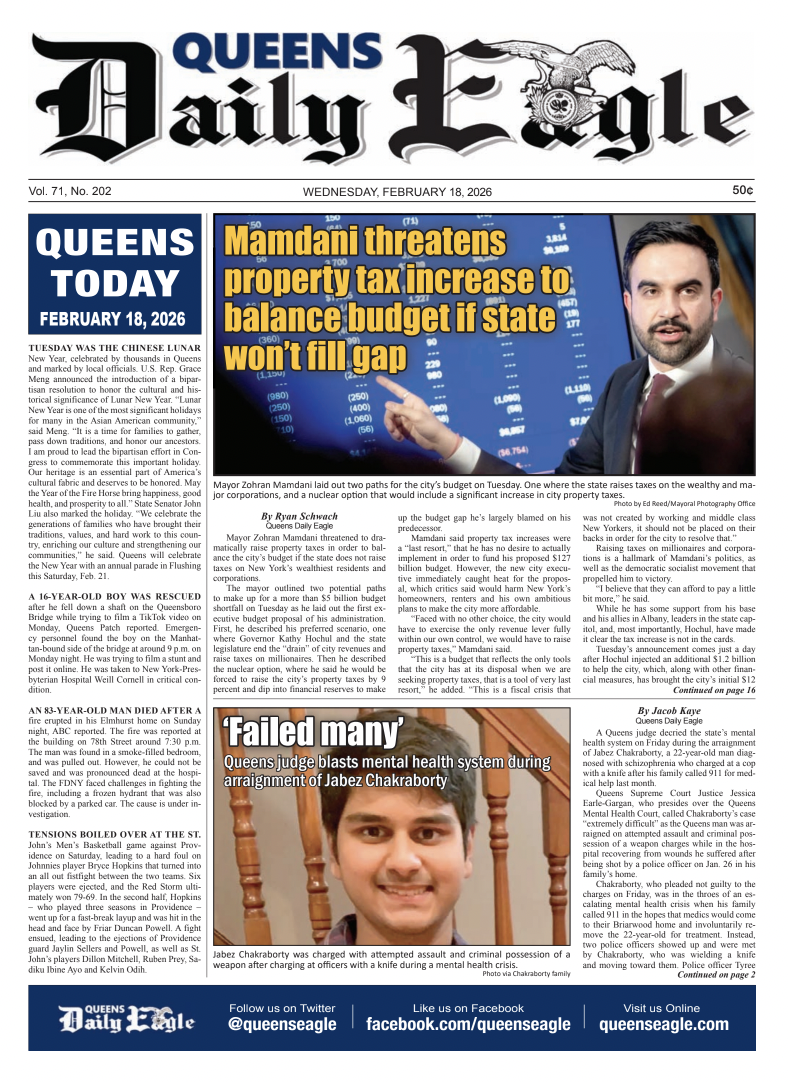New York’s courts remember 9/11
/The New York State Unified Court System on Monday honored the memory of 9/11 and the three court officers who died during the attacks. Eagle photo by Ryan Schwach
By Ryan Schwach
Twenty-two years after the Sept. 11 attacks, the New York State Unified Court System remembered the three court officers who lost their lives that day on Monday.
Outside the Manhattan Civil Courthouse at 111 Centre Street, court administrators, court officers and families remembered the attacks that occurred just about a mile away, as well as the three court officers who ran to the aid of their fellow New Yorkers and made the ultimate sacrifice.
Court Officers Captain William Henry Thompson, Officer Thomas Jurgens and Officer Mitchel Wallace all ran towars danger to help when planes hit the World Trade Center.
“[They] sacrificed their own lives in the hope of helping others,” said Chief Judge Rowan Wilson.
Thompson, a 27-year veteran of the department and Bronx resident, was at the Court Officer Training Academy on Williams Street when he ran to help.
Jurgens was at 111 Centre Street, and made the one-mile trip to the World Trade Center with other officers. He was 27-years-old and was from Long Island. He had just gotten married three months prior.
Wallace, also from Long Island, had only just joined the court officer ranks three months prior. He raced to the World Trade Center in civilian clothes while on his way to working that day.
Members of all three officers’ families were present at the memorial on Monday.
“The pain, collective sorrow in our hearts, soul and spirit over the horror and the loss that is Sept. 11 remain strong, despite the many years that have passed,” said Deputy Chief Administrative Judge Edwina Richardson-Mendelson.
“Also strong is our collective and deep pride and gratitude for all those who have sacrificed, and we include their loved ones left behind, and who are connected forever in our hearts,” she added.
Richardson-Mendelson remarked on visiting Thompson, Jurgens, and Wallace's names at the World Trade Center Memorial, which are etched alongside the nearly 3,000 people who died that morning.
“I am often drawn to the National Sept. 11 Memorial Plaza, it is not too far from here…my personal favorite area is where our Unified Court System heroes…are beautifully and appropriately adjacent,” she said. “I touch those names, I am deeply touched, and I am inspired.”
“To me, that is sacred space,” she added.
Captain Henry Thompson, Officer Thomas Jurgens and Court Officer Mitchel Wallace responded to the World Trade Center on 9/11. Eagle photo by Ryan Schwach
First Deputy Chief Administrative Judge Norman St. George also spoke and acknowledged heroes of that day, in particular the three court officers.
“It shined a light on the selfless spirit and bravery of so many real life heroes,” he said. “Three members of our court family showed us all their selfless spirit and bravery that day. They instinctively ran towards danger to help others.”
“These men showed us the best in humanity,” he added. “Their memory reminds us of the very best in people during extremely dark times, and provides us with hope – hope that we will continue to see the good and the beauty in what remains, in addition to all others who lost their lives, and everyone else that assisted that day.”
All three court officials spoke of the enduring spirit of New York and its institutions since that day.
“We stand here, 22 long, yet short years later, trying to give meaning and memory to the magnitude of our losses,” said Richardson-Mendelson. “As we do so, let us continue to honor our fallen by doing what is ours to do. We are still here, my friends, my family, we are still here.”
Deputy Chief Administrative Judge Edwina Richardson-Mendelson remembered the officers and the events of 9/11.Eagle photo by Ryan Schwach
“All who work in the Unified Court System, in whatever capacity, have an equal role to play,” she added. “Let us continue to embody and exhibit respect, honor, kindness, compassion to all with whom we encounter, particularly those in need, who are seeking meaningful access to our courts, and to our remarkable system of justice.”
Wilson recognized the active court officers there that day, who marched in a procession down Centre Street.
“Your altruism is on the forefront, because you have chosen a career dedicated to helping others,” he said.
The newly appointed chief judge also hoped that in the memory of those who were lost, people maintain little acts of kindness, to give even a fraction of the altruism exhibited by the people lost on 9/11.
“Every day, do something small for someone you don't know, anything,” he said. “For example, offer someone a seat on the subway or bus, ask someone who looks lost if they need directions…little tiny efforts like these, very small in comparison to the sacrifices made by those who we honor today, have several important effects.”
Chief Judge Rowan Wilson spoke of the fallen officers, and doing good deeds to make the world a better place, during the court system’s 9/1 memorial service on Monday, Sept. 11, 2023. Eagle photo by Ryan Schwach
“Those efforts make you feel good about yourself, even if the person declines your efforts, your efforts will also make the other person feel better too, and more likely to pass that little bit of altruism on to someone else,” he added.







